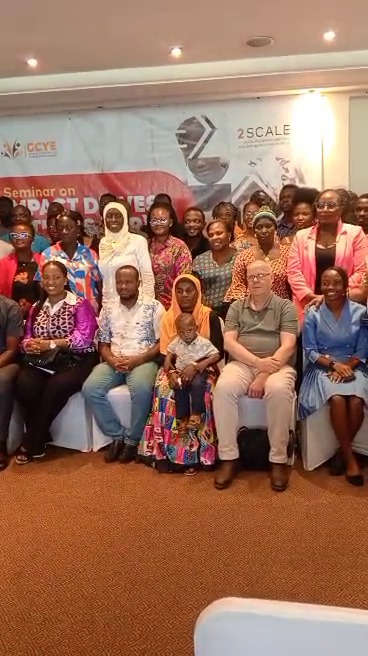Inclusive business models key to Ghana’s agribusiness growth – Chamber of Young Entrepreneurs – Nsemkeka
As Ghana continues its journey toward economic transformation, the role of agribusiness has taken center stage. Amid these developments, the Ghana Chamber of Young Entrepreneurs, in collaboration with 2SCALE, a Dutch-funded programme focused on inclusive agribusiness development in Sub-Saharan Africa has hosted the Impact Drivers Seminar.
This will help advance conversations around equity, sustainability, and shared prosperity in agribusiness.
The President of the Ghana Chamber of Young Entrepreneurs, Sherif Ghali, has called for a paradigm shift towards inclusive and sustainable business models in Ghana’s agribusiness sector, emphasizing their potential to unlock the country’s economic growth and improve livelihoods.
He made the remarks at the Impact Drivers Seminar organized by the Ghana Chamber of Young Entrepreneurs in collaboration with 2SCALE, a programme focused on inclusive agribusiness.
According to Mr. Ghali, “We want to get the inclusive business model out there and start looking at how Ghanaian indigenous businesses can adopt the model to be able to reach out.
Ghana is one of the countries and our economy need inclusive business more, so that we just don’t do business for profit, but we do business for impact, and that’s why we say your impact will drive your returns”.
Echoing his sentiments, Jail Zakaria, Country Team Leader for 2SCALE, urged the government to institutionalize inclusive business practices as a national standard. He believes making inclusivity a criterion for doing business in Ghana will support vulnerable communities, especially those at the base of the pyramid, and enhance food security.
“Given that Ghana is shifting towards the golden age of business, it is important for us either as governments or as development practitioners to begin to include inclusive business criteria in how we engage business. For instance, if the government is holding out their 24-hour economic policy, can they include things like inclusive business as a criteria in terms of the evaluation that we do? And that is how we can get inclusive business on a wider scale”, he stated.
The Impact Drivers Seminar served as a platform for stakeholders to explore collaborative efforts in building equitable business ecosystems that cater to all segments of society, particularly within the agribusiness space.

